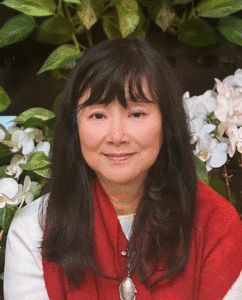“My body, my choice!” is a well-known cultural epithet that has championed the idea of human autonomy in relation to ethics. As one scans the horizon of ethical decisions facing Pennsylvania residents, one cannot help but be uneasy at this phrase being applied to physician-assisted suicide. At the moment, euthanasia is illegal in all 50 states, but physician-assisted suicide, its kissing cousin, is legal in 10 U.S. jurisdictions and is being considered in the Pennsylvania Senate via SB405, the “End of Life Option Act.” As one considers the phrase “my body, my choice,” we soon arrive at a worrying conclusion. What’s to keep this logic from demanding that we ought to have control over our own demise? Even more harrowing, with the anticipated doubling of assisted living facilities by 2060, what’s to keep the U.S. healthcare system from reaching the conclusion that it would be economically and pragmatically expedient for us to do so?
It is not advantageous for Pennsylvania residents to ride the wave of autonomy in the “End of Life Option Act” for at least two reasons. The first is that it irrevocably changes the nature of medicine. Our physicians, as it stands, practice according to the famous clause in the Hippocratic oath that no physician should actively use their knowledge to end a life. The introduction of physician-assisted suicide in Pennsylvania places the hood of the Grim Reaper upon our physicians and stunts true end-of-life care. Recent studies have demonstrated that physician-assisted suicide generates PTSD-like symptoms in the physicians who “legally” kill a patient and likewise produces similar effects in the family members of the deceased. Physician-assisted suicide creates havoc in its wake because it upends the very nature of medicine. The great emblem of healing, the physician, is being deformed before our very eyes.
The second reason it is not advantageous for Pennsylvania residents is that we ought to cling to the inherent dignity, value and worth of human life—even in suffering. The “End of Life Option Act” undermines this very thing. It sells a false bill of goods. It catapults us toward a view that “some” human lives are worth living and others are not. It does not acknowledge and recognize dignity; it robs people of it! In other words, it pilfers humans of any “essential” or inherent dignity and replaces it with a dignity that is purely existential and economic and, therefore, top-heavy. By existential, I mean that it pushes the value of a human life in an entirely subjective direction, and this disproportionately impacts the economically marginalized. The logic of the Act is that only some people have a life worth living. The reality is physician-assisted suicide is a spine-chilling fracture in the moral foundations of our society. We must reject a movement that sets the stage for the rejection of the inherent, immeasurable meaning and value of human life in the suffering and content alike. As Scottish ethicist Calum Mackellar has pointed out, the belief in such acts can only take place in a culture that no longer values human life. The “End of Life Option Act” proclaims some lives are worth living and others are not. Moreover, the Act would lead us to view suicide as a dignifying act. How is suicide—assisted or not—an action that bestows dignity?
With the phrase “my body, my choice,” we are left with a limited vision of what is right, wrong, and good. We must be careful how we wield the idea of autonomy. If we do not reject this, there is little to suggest that we will not take the path of Belgium. This is not simply a case of fearmongering through the slippery slope fallacy. The legalization of euthanasia and physician-assisted suicide in Belgium in 2002, for example, rested on the idea of human autonomy. By 2014, it was no longer just those who were terminally ill and experiencing unbearable suffering opting for euthanasia: The qualifying field expanded to include those with mental illness, children, and even those worrying over the reality and fear of economic burden. This is because the “End of Life Option Act” sets the right to die on the path to inalienable status. As such, we will find ourselves living in a society where it is not only an option to die but perhaps even economically and existentially expedient to do so. We need a broader understanding of what it means to be human as we consider ethics, one that acknowledges the inherent, inescapable, and irrevocable dignity of human life. If Pennsylvania senators adopt the Act, it must be admitted that the championing of autonomy—“my body, my choice”—will read as the epitaph over a society that killed itself.
This article was originally published in the Bucks County Courier Times on January 11, 2023.




